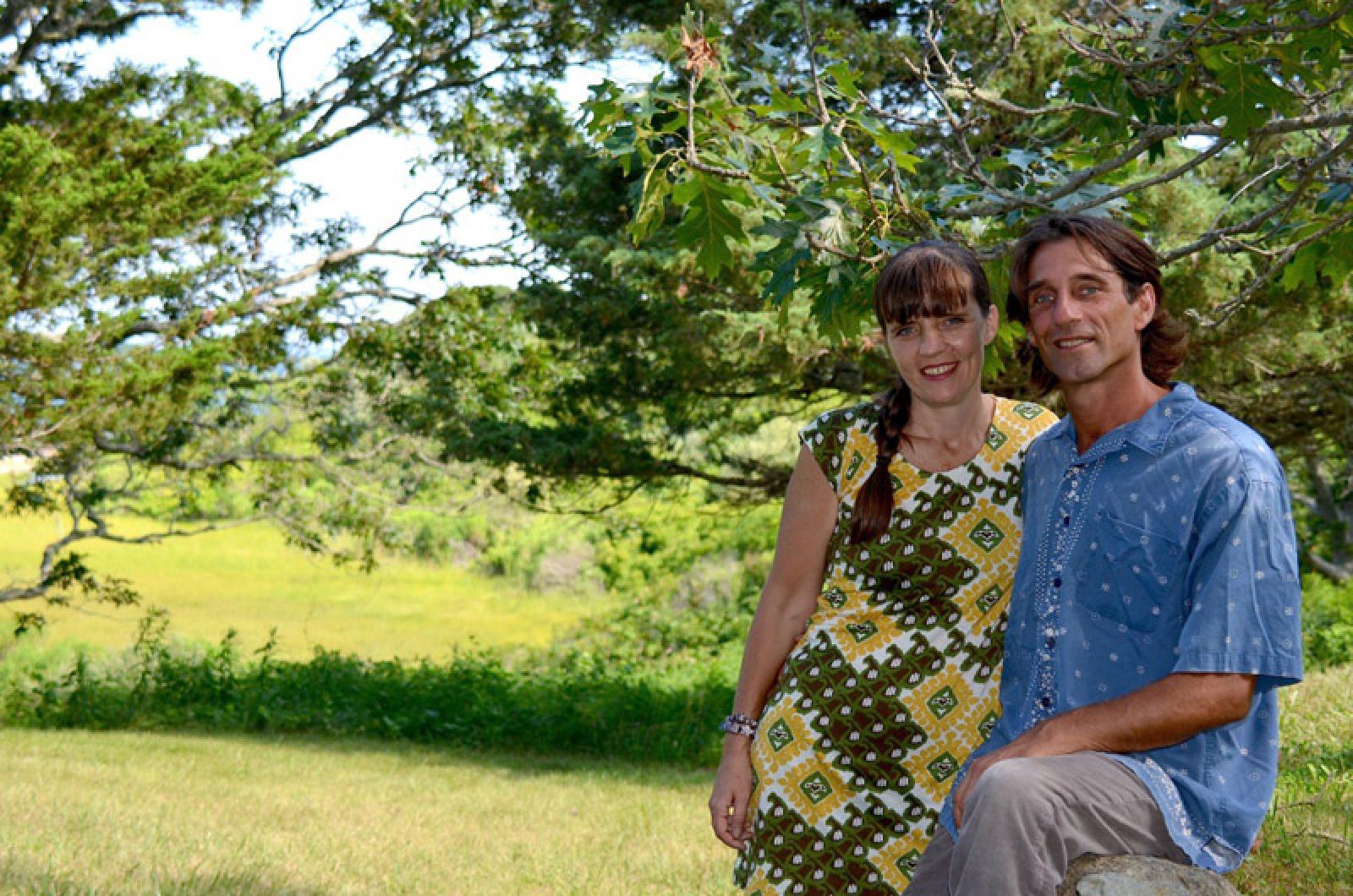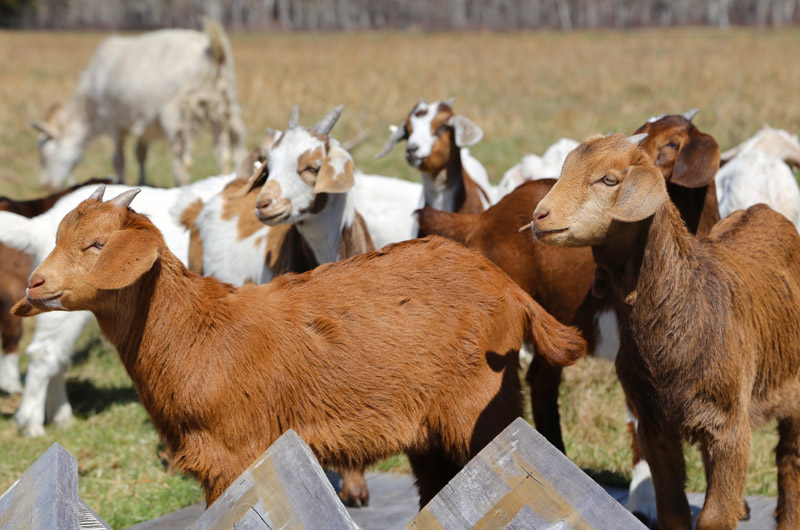Liz Witham and Ken Wentworth care about the environment. And they want you to care, too. The couple are documentary filmmakers whose series, Sustainable Vineyard, studies humanity’s relationship with nature.
“Humanity has perceived itself as being separate from nature, and we think we can use it in whatever way we want without repercussions,” cautioned Mr. Wentworth.
Research on other, global film projects has taught them that environmental degradation and crises are largely caused by humanity’s disconnectedness from nature.
“The most important thing you can do is to be connected on a local level,” said Mr. Wentworth.
Three documentaries, each an episode of the ongoing series Sustainable Vineyard, were shown at the Chilmark Community Center a week ago. The episodes included The Secret Lives of Conch, Goatscaping, and The Story of Seeds, all of which premiered earlier this year on Earth Day at the Martha’s Vineyard Film Center.
Born and raised on Martha’s Vineyard, Liz Witham earned an MFA in documentary filmmaking from Stanford. She and Mr. Wentworth had met on the Island in 1996, and have been working together as a directing team since 2001. They traveled to Asia where they spent a winter collecting footage that ended up being the reel with which Ms. Witham applied to film school. Since 2010, they’ve pooled their talent and poured it into making the Sustainable Vineyard series, highlighting local initiatives. Previous episodes have studied pig farming and food gleaning efforts.
Ms. Witham and Mr. Wentworth co-founded Film-Truth Productions, which was awarded a Martha’s Vineyard Vision Fellowship to continue its Sustainable Vineyard series.
“We try to deliver positive messages versus scaring people,” said Mr. Wentworth. “A lot of times with environmental films and stories there are a lot of fear based tactics — we are all going to die and such — and our approach is to make films that are a love story with nature. We want people to connect to and learn from them.”
The couple added that the process of making these films has enlightened them, too.
The Secret Lives of Conch follows Shelley Edmundson, a University of New Hampshire scientist sponsored by the Martha’s Vineyard/Dukes County Fishermen Association. Through the film, audiences learn that conch are the largest fishery on the Island, both in terms of the volume of sea snails caught and their value.
The film states that the Massachusetts conch fishery brings in about $6 million annually, 30 per cent of which is caught by Vineyard fisherman. The news elicited gasps from the audience.
“The Vineyard is our home, but we had no idea that the conch species was our largest fishery on the Island,” said Ms. Witham. This knowledge helps shed new light on the importance of state regulations around sea life. For example, in 2014 the state of Massachusetts had planned to mine sand from conch habitats. “Without someone like Shelley studying where the conch are it’s impossible to understand if sand mining would be disruptive to that species,” said Ms. Witham. “It’s important to bring light to this fishery so that we can understand and know how to protect it.”
Goatscaping looks at animal life on land and presents a practical alternative to clearing invasive plant species.
“We use sheep for lawnmowers, pigs for rototiller and the goats are like the brush cutters,” says Rebecca Gilbert, farmer and owner of Native Earth Teaching Farm. “They eat the bushes.”
The process is at once beneficial for landowners and goats. The animals eat bushes, vines and trees whose roots bring up minerals that are nourishing to the animals. “So not only are they doing us a favor by clearing brush, but it is really good for their health,” says Ms. Gilbert in the documentary.
In a conversation with the audience following the screening, Ms. Gilbert offered that pygmy goats are ideal for clearing, because they are easy to contain and won’t jump over fencing.
“They are small but they eat a lot, and that combined with their charming personalities make them our farm’s favorite,” she said. She suggested that there are many different goat varieties, and she described the selection process with humor, in a way that resembles humans choosing their mates. “You might like a taller goat, it depends,” she said.
She also assured the audience that the goats are seasonal employees, and don’t work through the winter.
The third film tackles seeds, and encourages the conservation of local seeds. “We explore why native plants might be preferable to imported plants that require fertilizer, water and input,” said Ms. Witham.
The filmmaking couple eschews the word mission, but if their work has one, it’s this: “We are trying to deliver the simple message that the environmental crisis we are having is actually the consequence of environmental destruction,” said Mr. Wentworth. “The biggest thing we can do to help reverse the process is to understand that.”









Comments (1)
Comments
Comment policy »